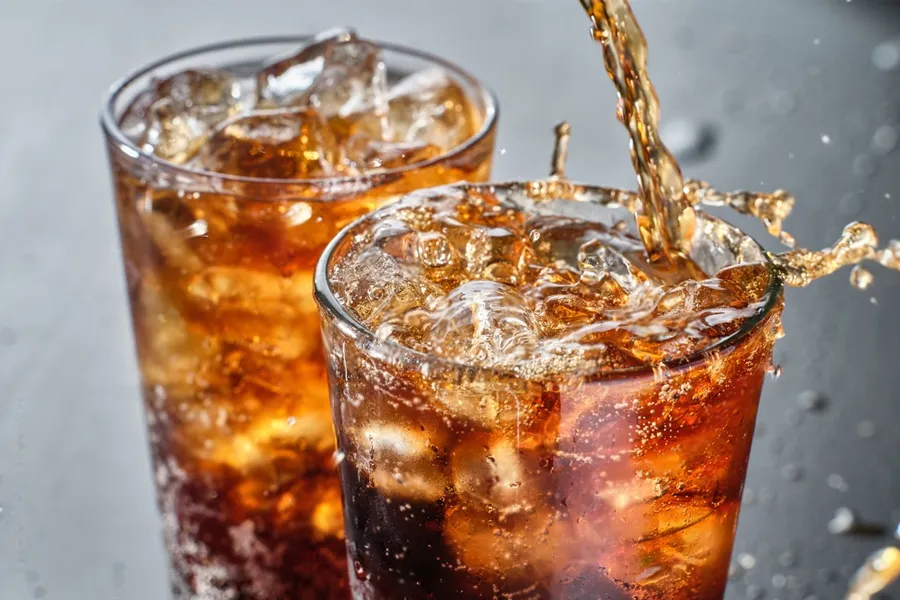
Why Do People Love Carbonated Soft Drinks Despite Their Health Risks?
Carbonated soft drinks are a global phenomenon, enjoyed by millions of people across diverse cultures and age groups. These fizzy beverages are often a go-to choice for quenching thirst or enhancing moments of celebration. However, their popularity persists despite growing awareness of the health risks associated with their consumption. This article explores why carbonated drinks are so beloved and highlights the potential health concerns, empowering readers to make more informed decisions.
1. The Sensory Appeal of Carbonated Soft Drinks
The first and perhaps most obvious reason for the enduring love of carbonated drinks lies in their unique sensory experience. The fizz, caused by dissolved carbon dioxide, creates a tingling sensation that excites the taste buds. This fizzy element adds a refreshing and slightly addictive quality, making it hard to resist.
Moreover, the sweet, tangy, and sometimes fruity flavors of carbonated drinks appeal to a broad range of palates. The sound of a can opening or the sight of bubbles rising in a glass is often associated with refreshment, making these drinks psychologically satisfying even before the first sip.
2. Clever Marketing and Emotional Branding
Carbonated soft drinks have been marketed as more than just beverages—they’re positioned as symbols of joy, connection, and lifestyle. Advertisements often portray them as essential companions for social gatherings, celebrations, or even moments of relaxation.
Brands like Coca-Cola and Pepsi have mastered the art of emotional branding, using catchy slogans, memorable jingles, and celebrity endorsements to build an unshakeable connection with their audience. Seasonal campaigns, such as holiday-themed packaging, further enhance their appeal. This emotional connection keeps consumers coming back, even if they are aware of the health implications.
3. Accessibility and Ubiquity
Another factor driving the popularity of carbonated drinks is their availability. You can find them everywhere—from vending machines and convenience stores to restaurants and airports. This constant accessibility makes them a convenient option for people on the go.
Moreover, carbonated drinks are often cheaper than healthier alternatives like fresh juices or smoothies. Their affordability ensures they remain a popular choice, especially among younger audiences and low-income households.
4. Sugar, Caffeine, and the Brain’s Reward System
Many carbonated drinks contain high levels of sugar, which trigger the release of dopamine in the brain. This “feel-good” neurotransmitter creates a temporary sense of pleasure and satisfaction. Over time, regular consumption can lead to a form of dependency, as people turn to these drinks for a quick mood boost or energy kick.
Some carbonated drinks also contain caffeine, which provides an additional pick-me-up. This combination of sugar and caffeine creates a potent reward loop, making it difficult for consumers to cut back.
5. Variety Keeps Things Exciting
Carbonated drinks offer an incredible range of flavors, from classic cola and citrus to exotic blends like cherry or tropical fruit. This variety ensures that there’s a drink to suit virtually every taste preference. Limited-edition flavors and regional exclusives further entice consumers to explore new options, keeping the category exciting and relevant.
The Health Risks of Carbonated Soft Drinks
Despite their widespread appeal, carbonated drinks come with significant health risks when consumed excessively.
- Obesity and Type 2 Diabetes: The high sugar content in many carbonated drinks contributes to weight gain and increased risk of diabetes. A single can often contains more sugar than the daily recommended limit.
- Dental Issues: The acids and sugars in these drinks erode tooth enamel, leading to cavities and gum problems.
- Bone Health Concerns: Phosphoric acid, commonly found in cola drinks, may interfere with calcium absorption, potentially weakening bones.
- Heart and Metabolic Health: Regular consumption has been linked to a higher risk of heart disease, metabolic syndrome, and other chronic conditions.
How to Enjoy Carbonated Soft Drinks Responsibly
While it’s unrealistic to expect everyone to give up carbonated drinks entirely, moderation is key. Here are a few tips for reducing their impact on your health:
- Choose Sugar-Free Options: Diet sodas and sparkling waters with no added sugar can be a better choice, although they may still contain artificial sweeteners.
- Limit Frequency: Save carbonated drinks for special occasions rather than daily consumption.
- Hydrate with Alternatives: Drink water, herbal teas, or naturally flavored sparkling water to reduce dependency.
- Watch Portion Sizes: Opt for smaller cans or bottles to minimize sugar and calorie intake.
Conclusion
The enduring love for carbonated soft drinks can be attributed to their sensory appeal, clever marketing, and widespread availability. Their addictive combination of sugar, caffeine, and variety keeps them at the forefront of global beverage choices. However, the health risks they pose cannot be ignored.
By understanding the reasons behind their popularity and being mindful of their potential downsides, you can enjoy carbonated drinks in moderation without compromising your well-being. Small changes in your habits can lead to a healthier lifestyle while still allowing you to savor the occasional fizz.
FAQs About Carbonated Soft Drinks
Q: Are all carbonated soft drinks bad for health?
A: Not necessarily. Drinks with no added sugar or artificial sweeteners, like sparkling water, are generally a healthier choice.
Q: Can I replace carbonated soft drinks with homemade alternatives?
A: Yes! You can make refreshing alternatives by mixing sparkling water with fresh fruit juices or herbs for natural flavoring.
By keeping a balance, you can enjoy the effervescent charm of carbonated soft drinks while prioritizing your health.


No Comments